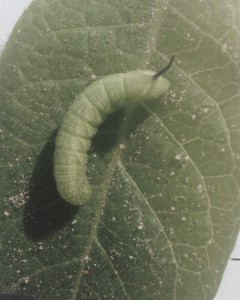
Video Guide to Tobacco Insect Scouting
Graduate student Jeremy Slone is an expert in tobacco insect scouting methods, having recently defended his masters thesis, “Overcoming …



El inglés es el idioma de control de esta página. En la medida en que haya algún conflicto entre la traducción al inglés y la traducción, el inglés prevalece.
Al hacer clic en el enlace de traducción se activa un servicio de traducción gratuito para convertir la página al español. Al igual que con cualquier traducción por Internet, la conversión no es sensible al contexto y puede que no traduzca el texto en su significado original. NC State Extension no garantiza la exactitud del texto traducido. Por favor, tenga en cuenta que algunas aplicaciones y/o servicios pueden no funcionar como se espera cuando se traducen.
Inglês é o idioma de controle desta página. Na medida que haja algum conflito entre o texto original em Inglês e a tradução, o Inglês prevalece.
Ao clicar no link de tradução, um serviço gratuito de tradução será ativado para converter a página para o Português. Como em qualquer tradução pela internet, a conversão não é sensivel ao contexto e pode não ocorrer a tradução para o significado orginal. O serviço de Extensão da Carolina do Norte (NC State Extension) não garante a exatidão do texto traduzido. Por favor, observe que algumas funções ou serviços podem não funcionar como esperado após a tradução.
English is the controlling language of this page. To the extent there is any conflict between the English text and the translation, English controls.
Clicking on the translation link activates a free translation service to convert the page to Spanish. As with any Internet translation, the conversion is not context-sensitive and may not translate the text to its original meaning. NC State Extension does not guarantee the accuracy of the translated text. Please note that some applications and/or services may not function as expected when translated.
Collapse ▲
Graduate student Jeremy Slone is an expert in tobacco insect scouting methods, having recently defended his masters thesis, “Overcoming …
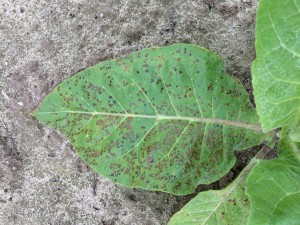
May 29th– As the 2016 tobacco season rolls into June the crop as a whole still looks very solid in …
‘Roundup Ready 2 Extend’ (RR2X) soybean varieties are now becoming available on the market. Farmers should be aware of some …
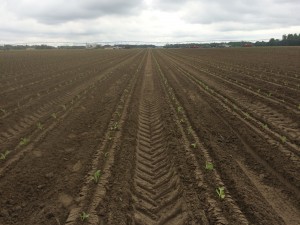
April 19th– Once again, it’s been a week or so since our last update. Things have been very, very quiet …
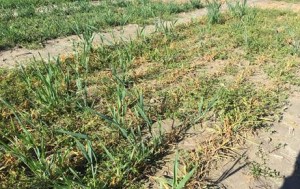
This week, we received several samples of stunted wheat from Robeson, Lenoir, and Beaufort. There are more reports of …

March 15th, 2016 Fertilizer materials continue to be major talking points with producer’s and Extension Agents. It’s safe to assume …

As part of our annual flue-cured tobacco production surveys, we asked county extension agents questions about current insect pest-control …
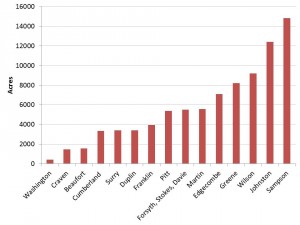
Surveys of flue-cured tobacco production practices are conducted annually by the NC State Tobacco Extension Team. At the end …
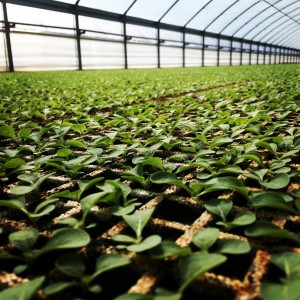
March 2nd, 2016- The first week of March has delivered unseasonably warm and sunny weather, which is much needed relief …

The 2016 winter meeting season is right around the corner. Meeting dates and locations are listed in the table …
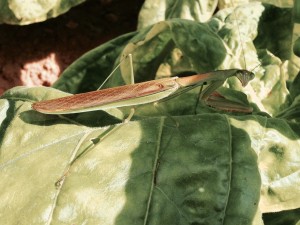
We observed both a decrease in flea beetle populations and an increase in predators this week at our remaining …
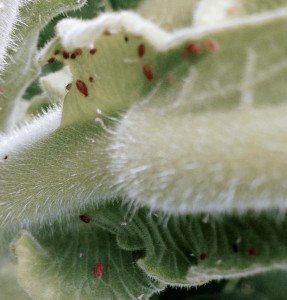
Several plants at our remaining on-farm site have small populations of aphids this week. While only one plant met the requirements …
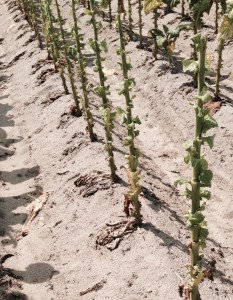
This week was busy with the final primings at nearly all of our remaining sites. We will continue reporting our …

With harvesting well underway, we are now able to observe how insects distribute themselves on the remaining foliage in the …
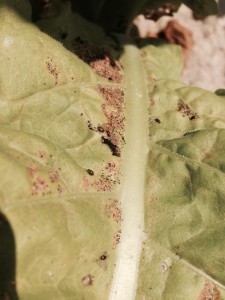
We are seeing more flea beetle feeding at sites with the lowest leaves still present on plants and consistently seeing beetles …
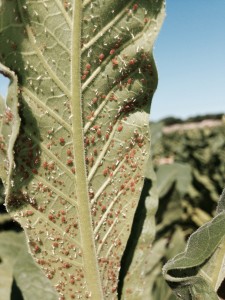
Similar to recent weeks, we are still in a bit of a midsummer lull for pest pressure. However, we still …

At least one fungicide application for leaf spot has been made to most of the peanut crop by now. …
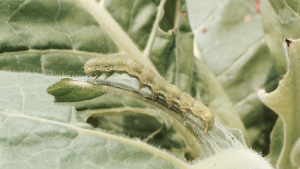
Budworm populations have surpassed threshold at all IPM sites to date, and all but one field has been treated. It …

Over the past week or so we’ve received a number of phone calls, emails, and text messages asking about …
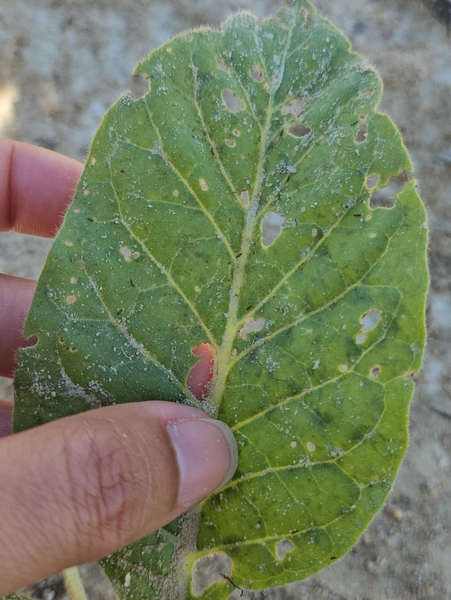
Tomato spotted wilt virus (TSWV), a member of the Orthotospovirus genus, was first described in …
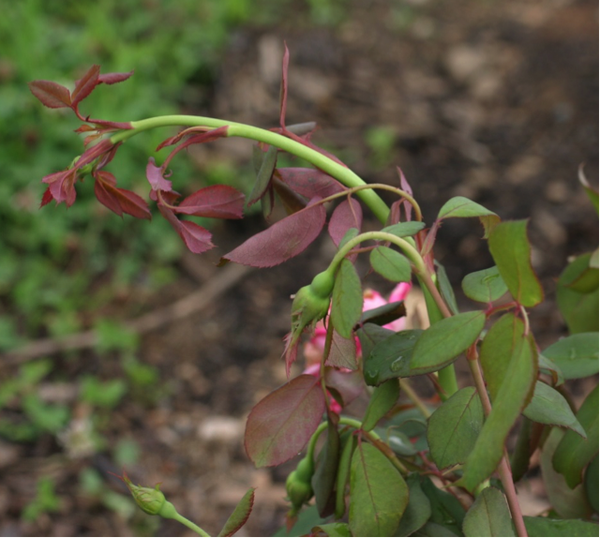
This factsheet describes the symptoms of a synthetic auxin (SA) herbicide injury.
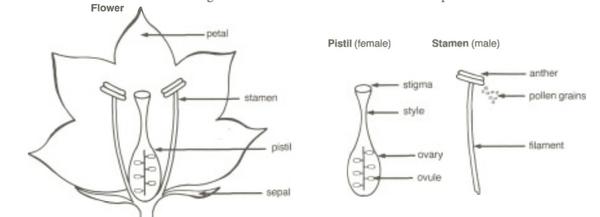
This guide presents basic facts about seeds, including how they develop, how to store and …

This publication has been prepared to acquaint growers, packers, and shippers with the most current …
This publication provides guidelines and recommendations for proper irrigation scheduling of wastewater.
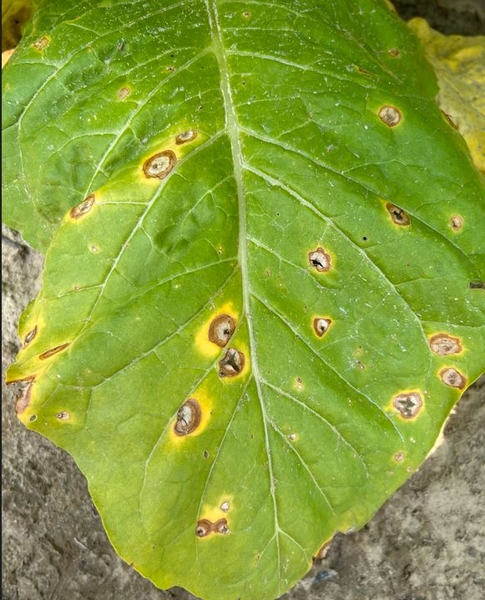
Target spot is a potentially devastating leaf spot disease in tobacco in North Carolina. This …

This factsheet describes the symptoms of an ALS inhibitor herbicide injury.
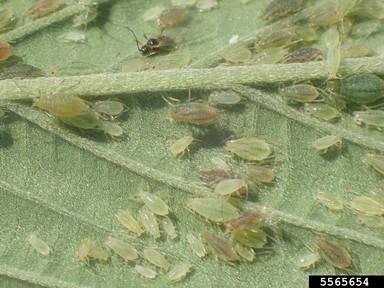
This factsheet discusses the biology, damage, and management of the cannabis aphid in industrial hemp …